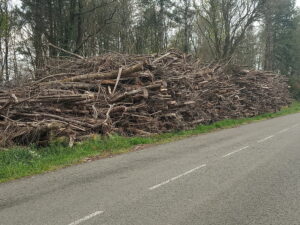
Introduction
The E-CHO project is an ambitious proposal involving three different but interconnected projects in and around Lacq, in the Pyrénées-Atlantiques Department in France. The proposal is being led by Elyse Energy, a startup company founded in 2020, which holds two-thirds of the shares in E-CHO. The other project partners and shareholders are Avril, Axens and IFP Investissements. The three projects proposed are to:
- Produce 72,000 tonnes of hydrogen per year from renewable and other “zero carbon” electricity (likely nuclear power);
- Produce 75,000 tonnes of aviation fuels and 35,000 tonnes of naphtha from wood, via gasification and Fischer-Tropsch reforming, with carbon capture. Hydrogen is used during the last stage of the process;
- Produce 200,000 tonnes of methanol from hydrogen and captured carbon dioxide (“e-methanol”).
Each of these projects would be a ‘first of its kind’ development worldwide. As discussed below:
- Hydrogen electrolysis (i.e. using electricity to split water molecules) is an energy intensive technology which has been successfully demonstrated, albeit not so far at the scale proposed here.
- All past attempts to produce liquid transport fuels, including aviation fuels, from wood have failed;
- Although the technology for making e-methanol has been demonstrated, e-methanol has not so far been produced at scale anywhere in the world, with the cost of hydrogen and carbon dioxide being the main barriers.
Below we will discuss both the risk of costly project failure, and the environmental risks should the project(s) succeed.
